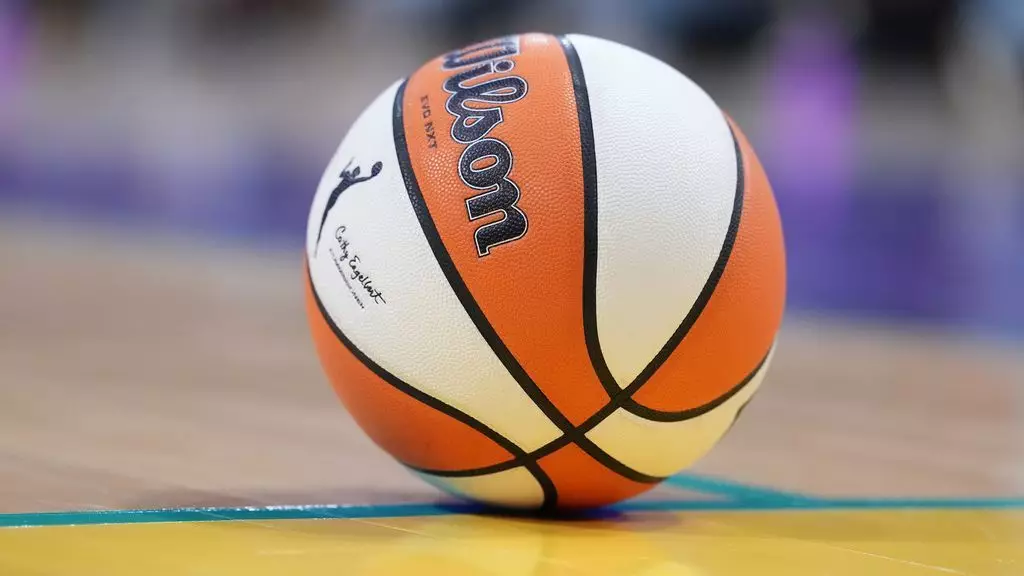In recent weeks, the disturbing phenomenon of confrontational and thoughtless behavior in professional sports has taken center stage, revealing more about societal values than the games themselves. Incidents involving thrown objects—ranging from sex toys to assorted toys—have become disturbingly frequent at WNBA games, shedding light on a broader issue of disrespect, lack of maturity, and an inability to distinguish entertainment from vulgarity. These acts are not merely juvenile mischief; they symbolize a deeper cultural decay where decorum and respect are increasingly optional in public spaces. This trend highlights the urgent need for society to revisit its core values and prioritize civility despite the digital age’s degradation of civility.
The Culture of Spectator Misbehavior: A Symptom, Not an Isolated Incident
The repeated throwing of objects onto the court, such as sex toys and toys, suggests a worrying normalization of disruptive behavior from spectators. It’s not coincidence that within a single week, multiple incidents have occurred across various cities—Los Angeles, New York, Chicago, and Atlanta—each echoing a lack of respect for players, officials, and fellow fans. These acts are often dismissed or trivialized as mere ‘fans being passionate’—a dangerous mischaracterization that excuses outright disrespect. Instead, they expose a troubling tendency toward the degradation of civil conduct and the erosion of boundaries that essential social norms demand. Such behavior not only distracts from the sport but risks safety and mental well-being, underscoring the urgent need for strong, consistent consequences.
Implications of Disrespect on Players and the Integrity of Sports
Beyond mere annoyance, this raucous behavior jeopardizes the safety of athletes and officials, who dedicate their lives to professional excellence and fair competition. The incident involving Sophie Cunningham and the thrown sex toy near her during a game epitomizes how disrespect can directly interfere with athletic performance and mental focus. Athletes are expected to exhibit resilience and professionalism, but repeated disturbances threaten to undermine the very spirit of fair play. Moreover, such disrespect diminishes the integrity of the sport itself, reducing it from a test of skill into a spectacle marred by chaos and hostility. It’s imperative that leagues enforce stricter penalties and create a culture where respect for players is non-negotiable, thereby upholding the dignity of sports and inspiring positive societal change.
The Role of Leadership and League Responsibility in Addressing the Crisis
Leagues and team authorities bear a significant responsibility for addressing this troubling trend. Their slogans about “safety first” echo hollow when incidents continue to occur with little accountability. Immediate action—such as increased security, harsher penalties for offenders, and public awareness campaigns—must be prioritized to curb this disrespectful wave. Leaders in the sports community must champion the importance of civility, making clear that such disruptive acts are unacceptable and will face consequences. By adopting a proactive stance, leagues can foster an environment of respect and set a standard that transcends the game, signaling to society that decorum and kindness are virtues worth upholding.
A Call for Societal Reflection and Change
The sports arena, traditionally a space for healthy competition, should serve as a reflection of societal ideals—respect, perseverance, and community. Instead, it’s increasingly becoming a mirror of the worst aspects of modern culture: hostility, immaturity, and impulsiveness. This is a wake-up call for society to reconsider how we communicate and behave publicly. Encouraging empathy, patience, and self-control within sports environments can ripple outward into everyday interactions. Until the core societal issues—disrespect, entitlement, and digital cynicism—are addressed, these disruptive acts will continue to tarnish the integrity of sports and diminish their role as platforms for positive influence.
The worsening trend of disruptive fan behavior reveals more than just a failure of individual decency; it exposes the fragility of social cohesion in a time when civility should be more vital than ever. If we are to preserve the dignity of professional sports and, by extension, our society, decisive and consistent action—rooted in respect and accountability—is paramount.


Leave a Reply